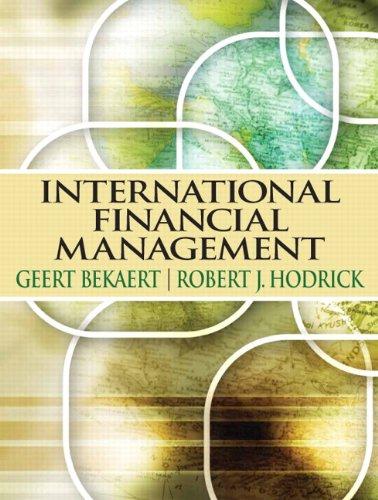Question
The reason corporations issue 100-year bonds, knowing that interest rate risk is highest for very long-term bonds is that the corporation [issuer] takes the opposite
The reason corporations issue 100-year bonds, knowing that interest rate risk is highest for very long-term bonds is that the corporation [issuer] takes the opposite side of the interest rate risk position. By issuing long-term bonds, the corporation is essentially betting that rates will not fall significantly. If they do, the corporation will incur a loss due to borrowing at rates higher than the going market rates. On the other hand, if rates rise, the corporation benefits by having locked in its borrowing rate for up to 100 years. In addition, these bonds are a source of long-term financing where the cost, i.e. the interest, is tax deductible. If the firm should issue stocks, the cost, i.e. the dividends, are not tax deductible. This is why the IRS frowns on 100 year bonds.
Given this information as a U.S. taxpayer, would you support the IRS limiting of long-term bond issuances by Corporations? Why or why not?
Step by Step Solution
There are 3 Steps involved in it
Step: 1

Get Instant Access to Expert-Tailored Solutions
See step-by-step solutions with expert insights and AI powered tools for academic success
Step: 2

Step: 3

Ace Your Homework with AI
Get the answers you need in no time with our AI-driven, step-by-step assistance
Get Started


